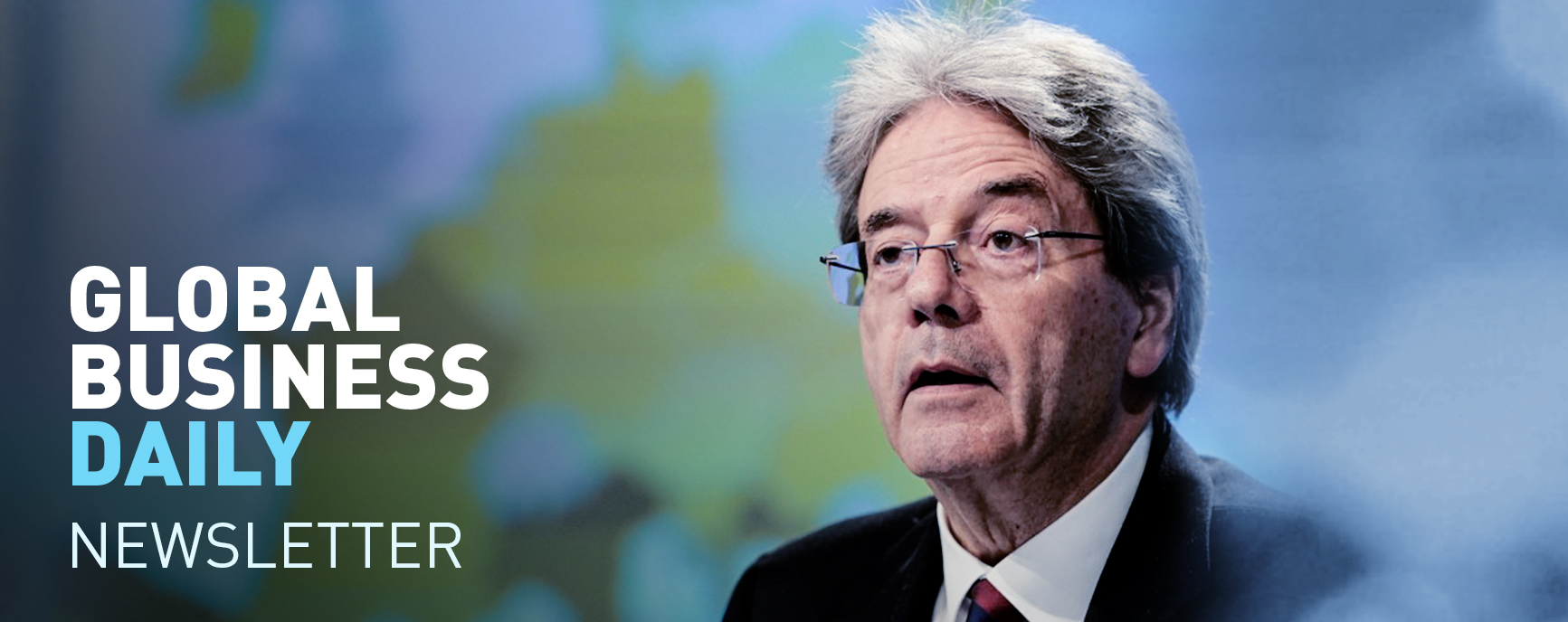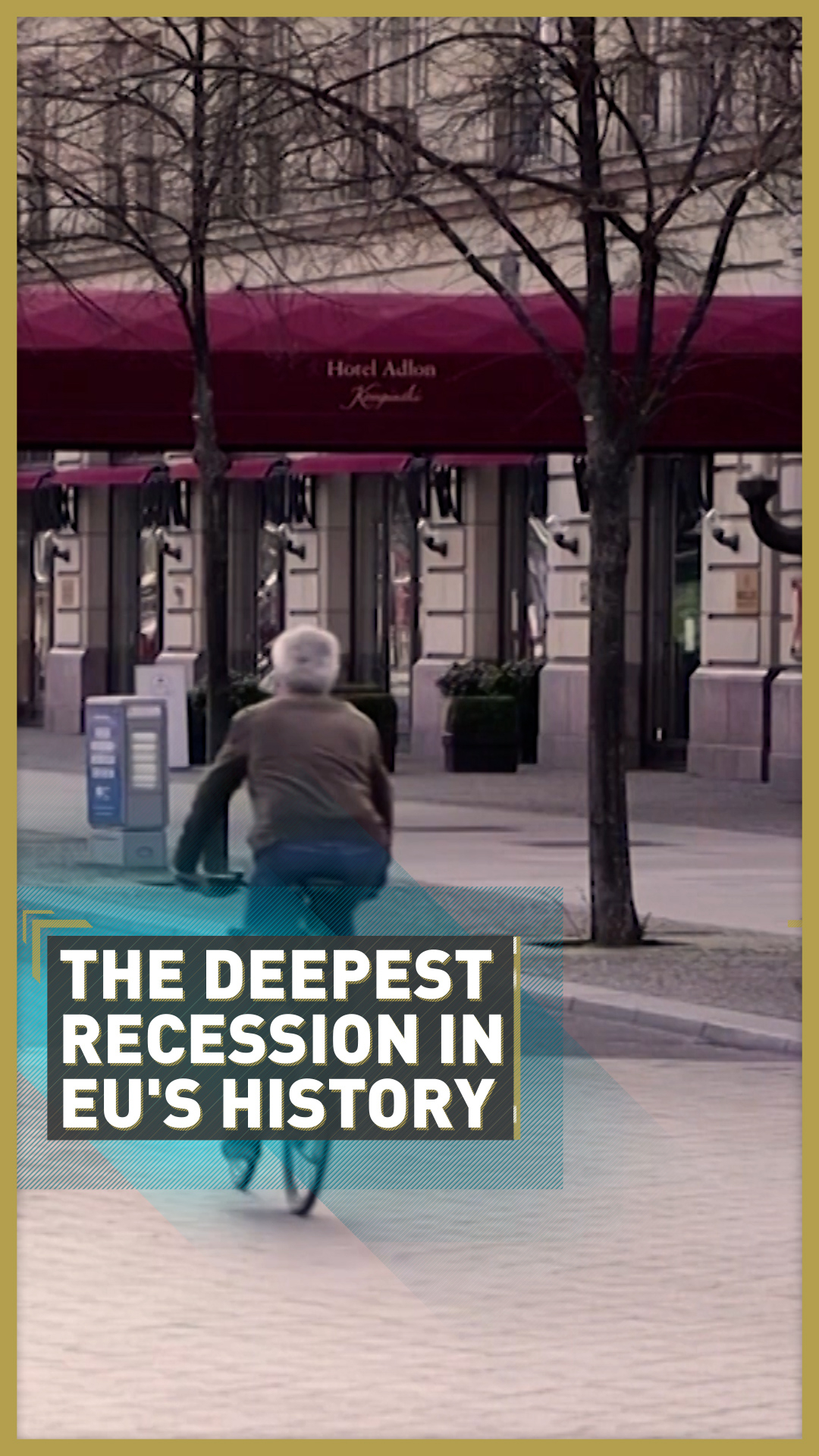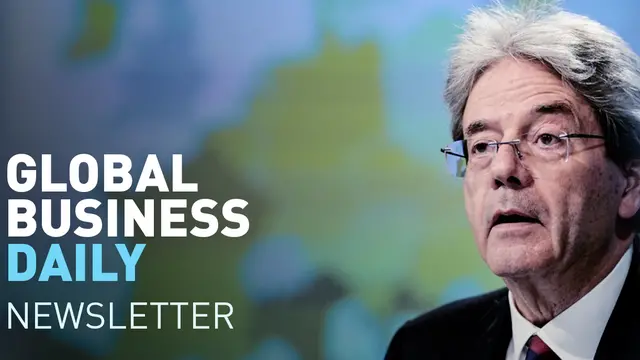"The key issue is whether they will be allowed into the country that they are going to – and whether they will be allowed back again. For this there needs to be a common international standard… on which we will allow people from Spain to come to the UK, and from the UK to go to Spain, without the need to go into quarantine or some other measure, which would completely kill the travel sector."
That's John Holland-Kaye, the CEO of London's Heathrow Airport. He was speaking as some nations around Europe have relaxed lockdown restrictions, but airlines such as Virgin in the UK cut jobs and cast doubt on when – or indeed where – they would return.
It's not just airlines struggling, of course, and the newcomers to the transport and travel sector are also cutting jobs amid the lockdown. Both Uber and AirBnB today announced cuts to their permanent staff.
On the subject of jobs, losses and measures to stem the tide, we spoke to Gerard Lyons about the furlough schemes being employed around the world. The economist and board member of the Bank of China explained why he thinks the schemes are a good idea, but will not totally stop redundancies.
There is better news on the horizon, though, as Chinese industries show green shoots of recovery. And for the sports fans out there, the German Bundesliga is set to resume (behind closed doors, but live on television).
We also take a look at falling CO2 use (from energy) across Europe in today's graphic, which again is mainly good news.
Happy reading,
Patrick Atack
Digital business correspondent
**P.S. Did you know we send this briefing by email, too? **
You can sign up to receive it here.

Europe will experience a record downturn, with a 7.7 percent economic contraction this year, according to the EU's commissioner for economy, Paolo Gentiloni. "Both the depth of the recession and the strength of recovery will be uneven," he said.
China's Geely Automobile said it sold more than 105,000 cars in April, which is a two percent gain on the same period in 2019. The Zhejiang-based firm added it will keep its sales target of 1.41 million units this year, up from 1.36 million in 2019.
Aluminum prices have risen more than 10 percent on the Shanghai Futures Exchange over the past seven weeks, but traders warned a drop in Chinese export demand could send the price back down again.
Ride-hailing firm Uber has revealed it is to cut 3,700 full-time jobs and its CEO, Dara Khosrowshahi, will not take his salary for the remainder of the year, as the company faces losses amid the pandemic lockdown.
Samsung vice president Jay Y. Lee has apologized for his and the firm's conduct over a bribery case, which may yet send Lee to jail. He also said he would not hand over control of South Korea's largest conglomerate to his children, as his father did previously.
Disney has lost at least $1.4 billion by closing its international parks according to CEO Bob Chapek, who only took control of the multinational earlier this year. He also confirmed the Shanghai Disneyland park would reopen on 11 May, though with capacity capped at 30 percent.
The UK is reportedly arguing against EU desires to guarantee international climate change commitments in the UK-EU trade deal, currently being negotiated. The EU hopes to place the Paris 2016 agreement alongside human rights and the rule of law in the new deal.
Online supermarket retailer Ocado has reported a 40 percent rise in revenues so far in the second quarter of the year, as it increased capacity to cater to UK households under coronavirus lockdown.
The U.S. private sector lost 20 million jobs in April, easily outstripping the previous record single-month loss of 835,000 in February 2009.
German car maker Volkswagen said its April sales figures in China were only two percent down on the same period last year, despite overall sales in the nation falling seven percent. It said it expects to see car sales return to 2019 levels in May.
Airbnb has reported mixed results so far this year, with internal bookings rising in Denmark and the Netherlands. But, despite this, the firm still predicts it will earn only half the $4.8 billion it took in 2019, and has cut 25 percent of its staff.
02:15

CGTN Europe's Toni Waterman reports from Brussels on the warning that the EU has entered the deepest recession in its history.
Gerard Lyons, who was the chief economic advisor to Boris Johnson when he was mayor of London and is now on the board of the Bank of China, spoke to CGTN Europe on the realities of European furlough schemes, which allow businesses to pause payments to staff amid the pandemic as governments step in to help.
How long do you think the furlough scheme can be sustained?
Well, the furlough scheme can't be sustained indefinitely, but it certainly needs to be sustained for the next two or three months in most Western European countries. But the reality is that the longer it is sustained, then the more unaffordable it becomes.
Obviously, the scheme needs to be kept in place to allow businesses and people to overcome the worst of the virus. Therefore, in all likelihood, I would expect the scheme to start to be unwound as the economies in Western Europe start to be unlocked.
Where is this money coming from? What is the cost to our future?
Well, the cost is considerable. But to put it in perspective, over the last decade, in the wake of the Global Financial Crisis, the policy response to all sorts of shocks was monetary policy. Now, monetary policy has also been used in response to this crisis. But there has been and there is far more scope for fiscal policy to be used.
And that's what we're seeing with this furlough scheme and, indeed, other measures in Western Europe to help out firms, particularly small firms. So the money is coming from the government. It's raising questions as to how it will be financed in the future. But the reality of the current situation is that in an environment of low growth, falling incomes, low inflation, and also an environment where the governments themselves have forced the lockdowns, it's right for the governments to be using fiscal policy to actually help out the economy, companies and people.
Do you think then there's a likelihood the government is going to be borrowing this money?
The governments, at the end of the day, need to raise the money from a number of sources. Ideally, we have much stronger economic growth that sees tax revenues rise, but that isn't going to happen just yet.
So, therefore, governments across Western Europe will have to borrow the money. Now, it's an environment in which it is much easier to raise that finance in the markets, because in the environment where there are worries about growth, where investors are looking for safe returns, there is a so-called flight to quality.
So governments are finding it easier to finance their borrowing at the moment. Now, of course, at some stage there is a constraint as to how much money the governments would be able to spend. But for the moment, governments are doing the right thing. And I think it will be relatively easy, not completely easy, but relatively easy to raise this finance.
Virgin Atlantic announced they'll be slashing more than 3,000 jobs. Do you think some companies and many jobs now are beyond saving?
Well, this is an interesting issue because governments have acted in the way they have to try to limit the possibility of this becoming a temporary crisis that leads to a permanent loss of output and the permanent loss of jobs.
So, by using the furlough scheme and other measures, governments have been hoping that companies will not lay off workers permanently. But what we are also seeing is that many firms, particularly in sectors such as airlines, but other sectors as well, are reassessing their business models and their business outlook.
Therefore, you are seeing some firms lay off workers, not just temporarily but permanently. So we have a number of people talk out the different waves in terms of the virus, in terms of the unemployment/employment situation. What we currently have is the first wave in terms of governments responding to the shock of the virus. But there is a second wave as well, where companies are making permanent redundancies.
Do you think there's a danger that some companies will use the scheme to root out unwanted workers?
Well, clearly, different companies will do different things with this, but I think it's probably fair to say that most companies, just like governments, will respond in a very sensible way. This is an unexpected shock. We've not experienced it before.
So there is a lot of experimentation, so to speak, in terms of the approach of governments and how companies respond as well. Clearly, if your business model is permanently going to be impacted by this virus, then companies will decide that they may need to make some workers permanently redundant. But I think it's still premature to suggest there will be a permanent change.
I remember in the 2003 period when we had the SARS epidemic, then it was suggested there would be permanent changes to business models across East Asia. What we saw 18 months later, though, was many things that returned to normal, both in personal behavior and corporate behavior. And I think many companies in Western Europe will be expecting a return to some sort of normality. Therefore, I would expect most companies to try to retain their staff, particularly skilled staff. But there's no doubt that for some companies and in certain sectors, there will be a permanent loss as they make people redundant.

 简体中文
简体中文





